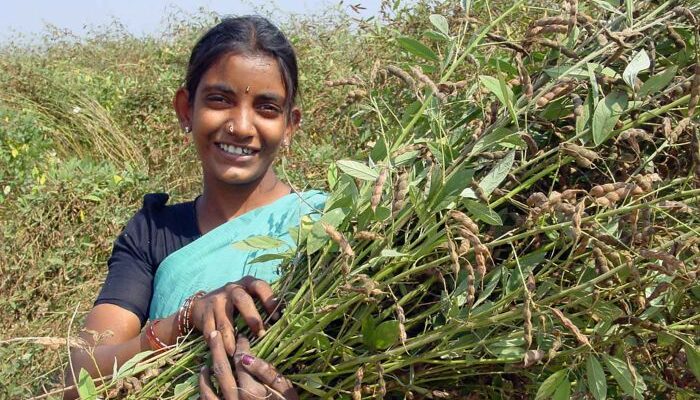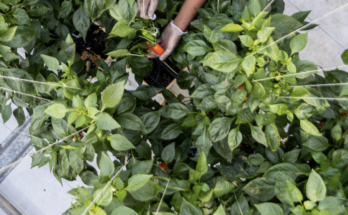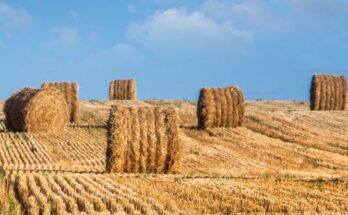Agrifood systems are a major source of livelihood for rural women. In South Asia, 71 per cent of the working women are engaged in the agrifood systems, many of them as informal workers. In India, more than 90 per cent of the workforce is in the informal sector with over 50 per cent of these workers being women. However, lack of formal recognition, access to finance, social responsibilities, gender gaps and the unjust impact of climate change limit women’s ability to be at the forefront and reap equal returns as men.
In the agrifood systems, women work as farmers, retailers, wage workers, entrepreneurs, and among others. However, their working conditions and economic opportunities are influenced by gender inequalities within the household, the community, the institutions, and the broader society. On this year’s International Women’s Day, the Food and Agriculture Organization of the United Nations (FAO) calls upon the need to address structural inequalities within the sector and the need to provide women with equal access to resources, services, technologies, and training to help close the gender gap in agrifood systems in India.
Women in agrifood systems
FAO views women’s participation in the agrifood systems as covering all aspects such as on-and-off farm activities which include production, processing, distribution, marketing, entrepreneurship, and consumption. Rural women play critical roles across the value chains.
You may also like to read – Enhance access to inputs, credit and technology to empower women in agriculture: Experts
However, gender challenges in India’s agrifood sector are multifaceted and deeply ingrained. More men are migrating to urban areas for non-agricultural employment thereby increasing women’s overall responsibilities in the sector. Women face disparities in access to resources, land ownership and credit.
Women’s access to agricultural extension services and technology is also limited, which affects their productivity. All these challenges collectively hinder women’s economic empowerment, agricultural productivity, and overall well-being within the sector. Needless to mention women working in agrifood systems are also unduly affected by disasters, such as climate risks and crises.
Creating gender-responsive agrifood systems
In India, incremental adjustments and transformative changes are necessary to create gender-responsive and inclusive agrifood systems.
Unlocking women’s empowerment isn’t just about their rights and their well-being —it’s a catalyst for boosting family income, ensuring food security, enhancing resilience, and maximising productivity. It is critical to enhance women’s role and their access to the agrifood system to ensure fair returns for the farmers, generate dignified employment opportunities for women and ensure food and nutrition security for rural households.
You may also like to read – CropLife India celebrates the contribution of women farmers in agriculture and economic development
In India, FAO aims to ensure women have equal decision-making powers, rights, and access to natural and productive resources and credit to contribute to and benefit from sustainable agriculture and rural development as men. Under the projects funded by the Global Environment Facility (GEF), Migration Multi-Partner Trust Fund, and Standard and Trade Development Facility (STDF) initiatives are being taken to provide women equal rights and access to services, markets decent work and equal control over the resulting income and benefits. The GEF projects also focus on developing agri-preneurs through green value chains for sustainable livelihoods and income opportunities for women. Strong monitoring and evaluation mechanisms are also set up to closely monitor women’s participation in the agrifood systems.
Way forward
Gender inequalities in agrifood systems in India can be addressed through appropriately targeted interventions. FAO’s experience clearly shows that measures to enhance gender equality not only benefit women and girls but can generate broader benefits for households and communities. Specifically, they can help reduce hunger and malnutrition, boost the rural economy, and reinforce the resilience of rural populations to climate change and other stressors.
For India to transform and advance its agrifood systems, it is important to close gender gaps, increase investment and create an inclusive environment. FAO calls to do better not only for women in agrifood systems but for their families, communities, societies and economies.
You may also like to read – Krushi Odisha 2024 showcases the mettle of women farmers to drive investment
Women must receive access to land ownership to strengthen their position in decision-making in agriculture. Stronger policy initiatives, increased budget allocation and policies for women-centric programmes must be encouraged.
Financial inclusion of women is essential for creating gender-responsive agrifood systems. Innovative financial solutions which consider aspects of climate impacts and leverage public capital to improve women’s credit access must be encouraged.
Creating gender equality is a transformational change necessary to ensure a meaningful impact on not only agrifood systems in India, but climate change, health, and economic growth as well, leaving no one behind. Gender equality and the empowerment of rural women and girls are central to FAO’s work to transform agrifood systems for all and to reach the Sustainable Development Goal of Zero Hunger by 2030.
(Takayuki Hagiwara, FAO Representative in India. Views expressed in the article are author’s own.)
Photo Credit: ICRISAT





